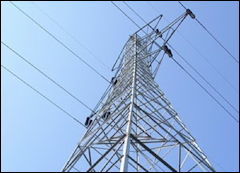Dominion Energy has filed an application to build two new electric substations in Loudoun County to serve a growing population and the boom in data centers…. mostly the data centers.
A typical data center consumes about the same amount of power as 7,500 residential households. There are more than 100 data centers operating in Loudoun now, according to the Washington Business Journal, with many more in the development pipeline. Their power demand is equal to that of about 750,000 homes. Loudoun County expects its population to grow from about 400,000 residents today to nearly 500,000 by 2045.
Dominion’s proposed 230-kilovolt switching stations will have dedicated circuits for future data center customers. Data center demand is forcing a reconfiguration of Virginia’s electric grid. In addition to the substations, Dominion needs to build or upgrade electric transmission lines to Northern Virginia. Needless to say, none of these projects are popular. Everyone likes the tax revenue they generate, but no one wants electric grid infrastructure in their back yard.


Leave a Reply
You must be logged in to post a comment.